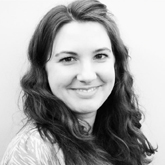Anthropology
Explore how culture shapes human life around the world—from religion and politics to gender identity and family ties.
Subjects
- Cultural Anthropology

Find out what it’s like to study Theatre at Te Herenga Waka—Victoria University of Wellington—hear from a student, a graduate, and a lecturer.

Bachelor of Arts in Theatre and Film
I latched on to studying Theatre at Victoria University of Wellington and I am yet to let go. It has helped me grow as an artist and invited me to tackle new creative opportunities.
The dance between practical and theory makes me feel like I'm getting the most out of what is being taught to me. The engaging lecturers blend the two amazingly. I get to work with others in rehearsals and am exposed to practitioners that I would have never found on my own.
The courses available have done wonders for my confidence in my abilities and have exercised creative muscles I didn't know were there. Studying Theatre has introduced me to peers who have become collaborators inside and outside of class. The Theatre programme has given me a chance to explore a wide range of perspectives and study options.

Te Atihaunui a Paparangi, Ngati Hauiti
Lecturer in Theatre
Nicola specialises in indigenous, diasporic and cross-cultural performance, with a particular interest in contemporary Māori work. Her research has explored indigenous retellings of Shakespeare, the performativity of Trans-Tasman rivalry, tropes of black masculinity in Olympic Games, cultural misappropriation and puppetry and celebrity responses to spontaneous haka.
Nicola is currently working on a ‘Māori Method’ research project, investigating links between whakapapa and performance, holding interviews with actors, directors and writers across Aotearoa. This research is linked to the establishment of a Global Centre for Contemporary Indigenous Performance, an incentive Nicola is leading in conjunction with some of this country’s foremost theatre makers.
Nicola’s teaching is influenced by the notion of korero-paki, or storytelling, with an emphasis on creativity, collaboration and humour. Nicola has worked as a writer, critic, actor and collaborative practitioner in both Aotearoa and Australia.

Freelance Theatre Director and Producer
Growing up I had always loved performing and the stage, but in seventh form I directed a school production and got the directing bug.
Studying the critical theories of theatre helps me every day as I question in my own work—what do I want this to do for audience? Engage? Provoke? Delight? How can I make my work do that? I was equipped with the drive and courage to forge and create my own career path, and to carve a new spot for myself in the history of New Zealand theatre.
Whilst studying, my friends and I started a theatre company (The PlayGround Collective). Once I finished my Honours, I directed The Intricate Art of Actually Caring, a play performed in Eli’s bedroom, employing all that I’d learnt at university. It won Best Theatre in the Fringe, Most Original Production at the Chapman Tripp Theatre Awards, and three years later was still touring around New Zealand.
It’s been uphill from there. The main advice I would give to students wanting to study theatre is to absorb everything. Study other things alongside your Theatre—History, Philosophy, English. Soak up everything that Theatre has to offer. And then use it in your own work.
Eleanor went on to become a Fullbright recipient and earned a MFA from Carnegie Mellon. Find out more about Eleanor Bishop
Previous
OverviewNext
Study options